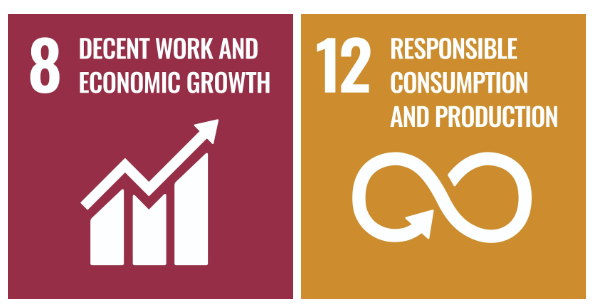1.グループの紹介
2.買収とサステナビリティ
3.私たちの観点・今後の展望
1.グループの紹介
こんにちは、私たちはグループ7です。私たちはグループとして買収に関する持続可能な利点と非持続可能な取り組みについて研究しています。
このブログでは、私たちの考えや成果を共有していきますので、ぜひ最後までお付き合いください。
まず、メンバーを一人ずつ紹介させていただきます。
キアラ・リッツォはグループ7番のリーダーで、ヴェネツィア・カフォスカリ大学の修士課程で日本語を学んでいます。イタリアと日本の中小企業がどうやって異なる価値観や文化を超えて協力し合えるかに興味があり、もっと理解を深めたいと思っています。
ジュリア・ベルトはグループ7番のメンバーで、ヴェネツィア・カフォスカリ大学の三年生です。日本語を勉強していて、専門は経済・法律です。持続可能性に興味があるので、持続可能性なリソースや技術を分け合うため、日本とイタリアの中小企業のコミュニケーションに手助けしたいです。
ダリオ・パガニは大学2年生の日本人学生で、イタリアと日本の間のコミュニケーション関係に興味があり、異なる社会文化的背景が商業的ビジョンにどのような影響を与えるかをさらに深く掘り下げていきたいと考えています。
西村花音は奨学金の団体であるあしなが育英会の海外研修プログラムによってヴェネツィア・カフォスカリ大学へ来ました。日本では文化財保存修復について専攻しています。今回は異なる価値観のメンバーと協力し社会から求められるようなプランを作っていきたいと思います。
グループ7のメンバーの矢野琴星と申します。専攻は、社会学と文化人類学で、所属しているゼミでは、被服行動について社会的な側面から研究してます。今回のワークショップでは、文化や社会的に立場の異なる企業間での取引において、クリーンなコミュニケーションが行われているかという点に着目していきたいと考えています。
2.買収とサステナビリティ
まず、グループ7のマクロテーマである買収について話す。買収とは、M&A(合併と買収)の手法のひとつであり、他社の経営権を握るため、過半数の株式を取得して子会社化する方法である。また、異国間での買収の場合は、不十分なコミュニケーションにより企業間ですれ違いが生じ、企業のサステナビリティが実現されないことがある。
このワークショップを通して、私たちのグループは日本とイタリアの企業間の買収における持続可能性にフォーカスしていく。
次に、企業のサステナビリティは、環境面や社会面から捉えることができる。社会の持続可能性と環境の持続可能性は、17の持続可能な開発目標のうち、8と12に当てはまる。
8の「働きがいも経済成長も」という目的は労働者の良い待遇と共に社会の経済成長をしていくことを指す。
12の「つくる責任、つかう責任」という目的は企業の観点から持続可能な消費と生産に取り組むべきことを指す。

3.私たちの観点・今後の展望
買収が行われる際、(特にイタリアと日本の企業文化からみて、)持続可能な取り組みは企業間で異なり、残業や劣悪な労働環境などの差も見られる。これらの違いを解決し、従業員がより働きやすい環境を整えるためには、フレックスタイム制やメンタルヘルス支援、成長機会の提供といった持続可能な労務管理方針を導入することが重要。ワーク・ライフ・バランスを重視し、社会的責任を支える企業文化を醸成するために、企業間で文化的価値観の一致を図り、従業員の幸福を促進する取り組みが求められる。
日本企業とイタリア企業の間で買収が行われた場合、持続可能な取り組みがどのように行われているのか、あるいは実施されていない場合には新たな取り組みを提案できるのかについても検討する予定。持続可能性の推進に向けてもどのような変革が可能かについて模索していく。
最後まで読んでいただきありがとうございます。
私たちと一緒に、このテーマについてもっと深く考えていきましょう!
——————————————————————————————————————————————–
1. Group Introduction
Hello, we are Group 7. As a group, we are researching the sustainable benefits and unsustainable practices associated with acquisitions. In this blog, we will share our thoughts and findings, so please stay with us until the end. But first, let’s introduce each of our members:
Chiara Rizzo: I am the leader of Group 7, studying Japanese in the master’s program at Ca’ Foscari University in Venice. I’m interested in how Italian and Japanese SMEs can collaborate across different values and cultures and hope to deepen my understanding of this topic.
Giulia Berto: I am a third-year student at Ca’ Foscari University, majoring in Japanese with a focus on economics and law. I am passionate about sustainability, and I want to facilitate communication between Japanese and Italian SMEs to share sustainable resources and technologies.
Dario Pagani: I am a second-year university student interested in the communication relationship between Italy and Japan and keen to explore how different socio-cultural backgrounds influence business visions.
Kanon Nishimura: I came to Ca’ Foscari University on a scholarship program by the Ashinaga Foundation. In Japan, I’m majoring in cultural property conservation and restoration. I hope to work with members of different values to develop socially relevant plans.
Kotose Yano: I study sociology and cultural anthropology, and focus on social aspects of clothing behavior in my seminar group. For this workshop, I aim to examine whether clean communication is being conducted in acquisitions between companies with different cultural and social standpoints.
2. Acquisitions and Sustainability
Our group’s macro-theme is acquisitions, a method in M&A (mergers and acquisitions) that involves obtaining a majority stake in another company to take control of it. When acquisitions involve companies from different countries, insufficient communication can lead to misunderstandings that compromise corporate sustainability. Through this workshop, our group focuses on sustainability in acquisitions between Japanese and Italian companies.
Corporate sustainability can be viewed from environmental and social perspectives. Those perspectives are reflected in Sustainable Development Goals (SDGs) 8 and 12. SDG 8, “Decent Work and Economic Growth” emphasizes economic growth alongside fair treatment of workers; while SDG 12, “Responsible Consumption and Production” urges companies to pursue sustainable consumption and production.

3. Our Perspectives and Future Outlook
When acquisitions occur, sustainable practices often differ among companies, with issues like overtime and poor working conditions arising. To resolve these differences and create a more employee-friendly environment, it is crucial to introduce sustainable labor management policies, such as flexible work hours, mental health support, and growth opportunities. In order to promote employee well-being, it is essential to prioritize work-life balance and promote a corporate culture that supports social responsibility.
When acquisitions take place between Japanese and Italian companies, we will examine if sustainability efforts are being implemented and, if not, propose new initiatives. We will explore what transformations might be possible to promote sustainability.
Thank you for reading to the end. Let’s discuss this topic together!


コメントを残す